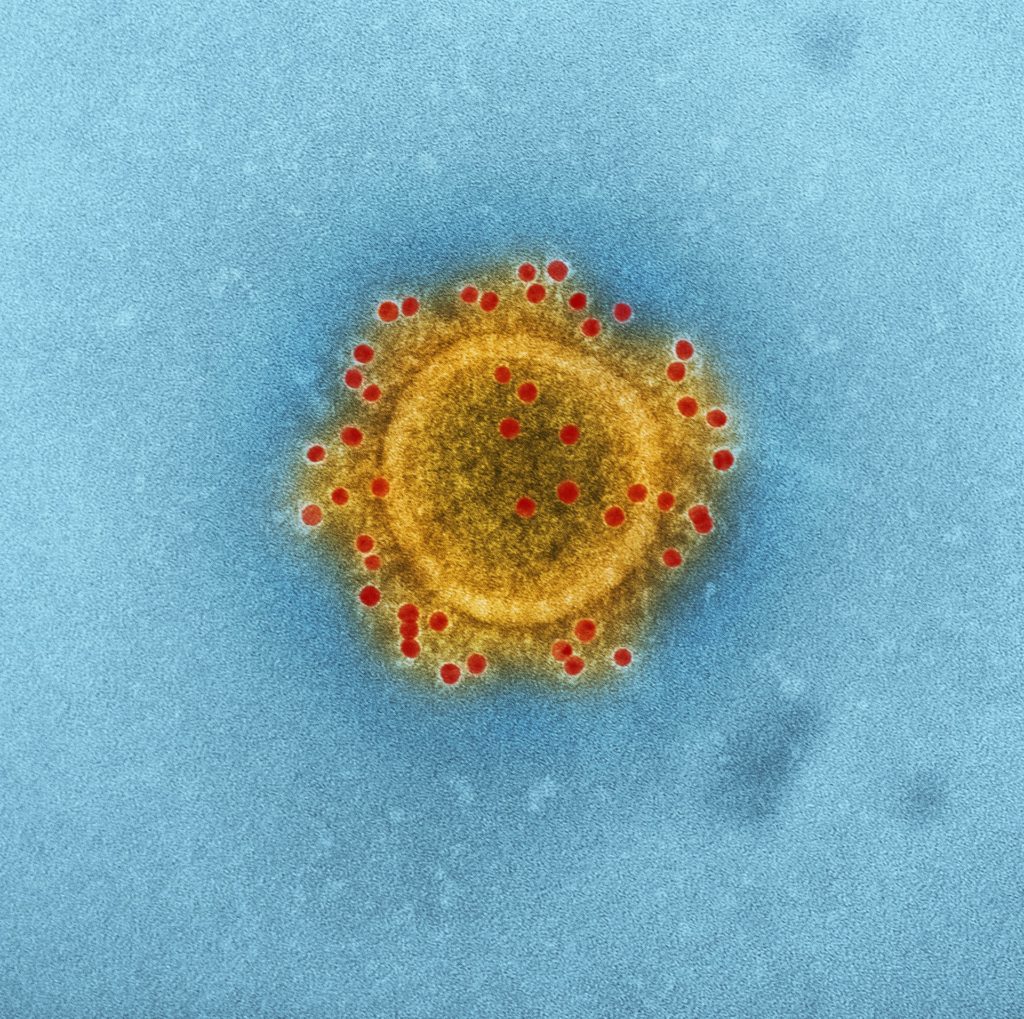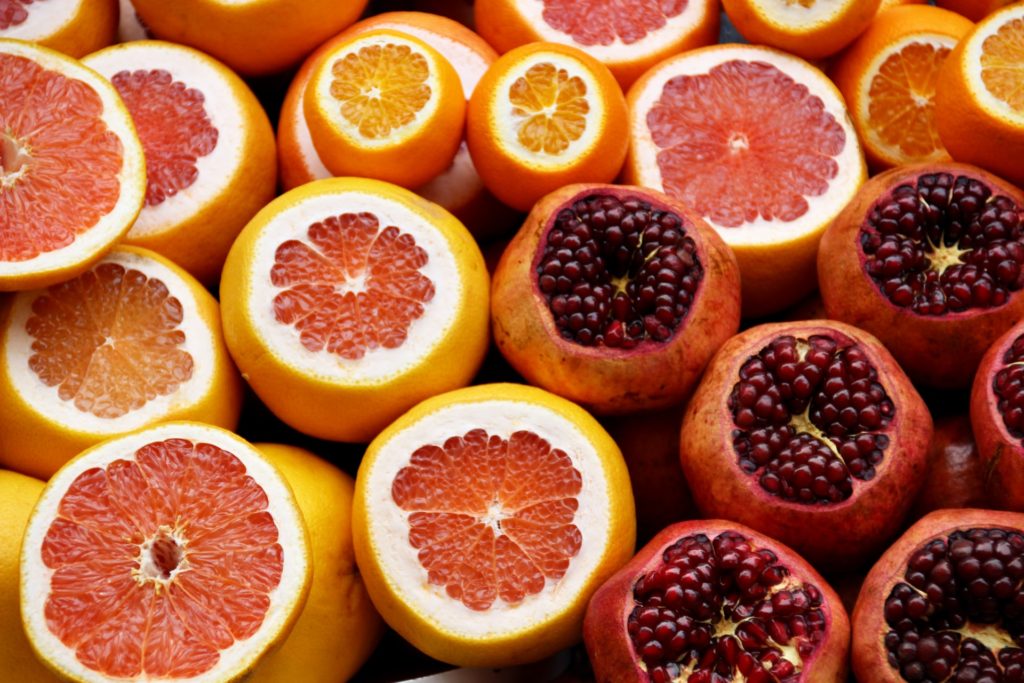Coronavirus: things that help…
in Diet and Nutrition / Fighting Infection / Health Care / Herbs / Vitamins
Alright, we’ve got work to do. Coronavirus is in town, so it’s time we make sure we’ve got our bodies prepared for a good fight.
I know we’re all inundated with the regular admonitions about how to combat this bug — washing hands, social distancing, etc. — so I’m not going to repeat them.
What I am going to do is talk about things you can do, in addition to the regular stuff, to keep yourself in the low-risk camp, or as close to it as possible.
Many of you had questions about supplements and herbs you could use to help, should you get an infection, or to prepare yourself ahead of time. And there are a handful of these that I keep around in what I call my “Anti-Bug First Aid Kit”. (ABFAK – it’s not a real medical thing unless it has an acronym.)
I’m going to focus on those that are particularly good at fighting (or preparing your body to fight) viral infections, or that have shown promise in supporting your immune system generally.
But first…
Let me make this really, really clear…
None of the things I am going to talk about are a “cure” for the coronavirus. You shouldn’t take any of these things instead of the medications that are recommended to you by your doctor, especially if you become infected.
And none of these things, to my knowledge, have been studied in terms of their ability to specifically fight the coronavirus, so please don’t interpret my inclusion of them here as a claim that they are.
This is simply what I choose to do for myself and my loved ones, based upon my clinical experience and the best evidence I have been able to find.
In addition, you shouldn’t take any of these things — especially if you’re on any sort of prescription medication — without talking to your physician. There CAN be interactions and side-effects when mixing nutritional supplements, herbs, and medications, so don’t play around.
Talk to your physician, and check out the Herbs and Supplements chart to get clear on possible drug interactions, the safety of these supplements for kids, and any complications for pregnant or breastfeeding mothers.
Cool?
All that said, I’m a kitchen-sink kinda guy when it comes to fighting off bugs. I want to give my body everything it needs, in addition to whatever conventional medications are recommended (assuming there are no known adverse interactions – see above).
A note on quality…
Don’t get this stuff from the grocery store, or from some big box pharmacy like Walgreens or CVS. Quality matters, so get it from a healthcare provider you trust and who has knowledge of nutrition and natural remedies, an established online source, or a specialty pharmacy (e.g. People’s Pharmacy, if you’re in Austin).
Also, keep in mind that the form of supplement you use matters. A supplement that says it’s “zinc” may be in the form of zinc oxide, zinc glycinate, zinc malate, or zinc aspartate, among others. Vitamin C preparations may be solely what’s known as “ascorbic acid”, or they may also contain flavonoids or buffering agents.
These things are not the same thing. They frequently absorb differently, are used for different purposes, or have been shown to be more or less beneficial for specific conditions. I wish it were simpler, but alas, it’s not.
___________________
Side note: This is a common reason why one study will say a supplement works, and another says it doesn’t. Your average lay newspaper or blog article will not understand this nuance, and will conclude that the supplement isn’t effective. Be skeptical. If the author doesn’t clearly have extensive nutritional training (hint: most doctors don’t), then be very wary of trusting the source.
___________________
With all that said, let’s move on to my recommendations. These aren’t in order of priority. All can be beneficial for the right person under the right circumstances. (If you want to know the exact products I like to use, enter your email address in the form below.)
Zinc
Zinc is something that I’ve always had as part of my ABFAK, but until I dove in and did a lot of research on zinc’s antimicrobial effects, I had no idea how much the form of zinc was important.
In short, zinc lozenges seem to work better than plain old oral zinc supplementation when you’re fighting an acute infection. Mossad SB, Macknin ML, Medendorp SV, Mason P. Zinc gluconate lozenges for treating the common cold. A randomized, double-blind, placebo-controlled study. Ann Intern Med 1996;125:81-8. If you’re trying to build yourself up to get ready to fight an infection (what most practitioners call prophylaxis), oral zinc supplementation is a better bet.
On that front, Zinc has been shown (by a randomized, double-blind, placebo-controlled trialPrasad, A. S., Beck, F. W., Bao, B., Fitzgerald, J. T., Snell, D. C., Steinberg, J. D., and Cardozo, L. J. Zinc supplementation decreases incidence of infections in the elderly: effect of zinc on generation of cytokines and oxidative stress. Am.J Clin Nutr. 2007;85(3):837-844.) to reduce the incidence of infection in those over 55 years of age.
Taking Zinc prophylactically does not appear to be as effective for adults younger than 55, or kids, on average. Though personally, I would still take it if the likelihood of infection is imminent. It’s cheap insurance.
While taking zinc long-term is generally safe, one group that does have to be extra careful is, ironically, those living in malnourished environments. In populations where large numbers of people are likely to be zinc-deficient, care must be taken to ensure zinc administration does not adversely impact the efficacy of antibiotic treatment.
If you’re not part of that group, short-term (i.e. less than 3 months) zinc supplementation should be safe.
As mentioned, zinc lozenges seem to work better than straight pill/tablet forms at reducing the duration of viral infections. This is something you would take DURING an infection, not as long-term supplementation, and the actual form of zinc that you use matters.
Keep in mind that in rare cases taking zinc along with some antibiotics (e.g. tetracyclines and fluoroquinolones) can interfere with their absorption, so be sure to talk with your doctor if you are taking these.
Dosage and Form
Lozenges
- Zinc salts like zinc gluconate and zinc acetate are more effective than most others (picolinate, citrate, aspartate, etc.).
- Use roughly 20mg of Zn dissolved in the mouth every 2-3 hrs for as long as you have symptoms, for a maximum of 14 days.
Tablets or Pills
- Zinc picolinate and zinc citrate are probably the forms that are best absorbed for oral supplementation.
- Take ~45mg/day.
- If you take Zinc long term (greater than 3 months), you also need to make sure you’re getting enough copper, since zinc can interfere with copper absorption. 1-2mg/day should be sufficient for this Zinc dosage.
Vitamin C
Vitamin C is that tried and true remedy that everyone has heard of, and seems to have a million uses. In terms of its ability to support your immune system and fight off infection, it’s for good reason.
Vitamin C levels found within your white blood cells (the ones that fight infection) drop dramatically in response to the common coldHume R, Weyers E. Changes in leukocyte ascorbic acid during the common cold. Scott Med J 1973; 18:3-7., and there’s no reason to think it wouldn’t for other viral infections. In other words, your body is using Vitamin C when the bugs start flying.
Many studies have shown that high doses of vitamin C reduced the duration of the common cold at the first sign of symptoms.
Dosage and Form
- Take 1g/day for prevention, and up to 6g/day at the first onset of any symptoms
How will you know if you’re taking too much? Your stool gets loose. High doses of vitamin C are known to cause diarrhea, so if you’ve increased your dosage to the point that this begins to happen, reduce your dosage until it stops.
___________________
Side note: for this reason, taking a little extra Vitamin C can be an easy, healthy, and safe way to get your bowels moving if you’re feeling constipated.
___________________
And keep in mind this point can change. As you’re fighting an infection, your Vitamin C needs increase. Thus, if you take Vitamin C when you’re asymptomatic, your stool might become loose at 4g a day. If you’re in the middle of fighting an infection, that might not happen until you hit 8g a day.
That’s right, this is the point where shit gets real.
Vitamin D
Despite the many beneficial health effects of Vitamin D, its record strictly in terms of fighting infection is complex. I’ll sum it up by saying this: If you’re deficient, or you suspect you may be, take some.
And if you don’t know, getting tested is easy and cheap. (Like, call me? Ordering a test is easy. No office visit required.)
For kids, this is particularly important. Low serum Vitamin D levels in kids have been shown to increase the risk of respiratory infections.Bozzetto S, Carraro S, Giordano G, et al. Asthma, allergy, and respiratory infections: the vitamin D hypothesis. Allergy 2012;67:10-7.
Dosage and Form
- Adults: take 2-4,000 i.u.’s daily for 8-12 weeks.
- Kids (1 and up): take 1-2,000 i.u’s daily for 8-12 weeks.
- If you’re pregnant or breastfeeding, don’t exceed 4,000 i.u.’s per day.
Elderberry
This is a well-known herb that has been shown effective in treating respiratory infections (which coronavirus is known to cause). One study showed elderberry reducing the number of colds, the number of days with symptoms, and the severity of symptoms in people travelling on intercontinental flights.Tiralongo E, Wee SS, Lea RA. Elderberry supplementation reduces cold duration and symptoms in air-travellers: a randomized, double-blind placebo-controlled clinical trial. Nutrients 2016; 8:182.
Another showed elderberry (with a combination of echinacea) to be as effective as Tamiflu at treating the flu, with fewer side-effects.Raus K, Pleschka S, Klein P, Schoop R, Fisher P. Effect of an Echinacea-Based Hot Drink Versus Oseltamivir in Influenza Treatment: A Randomized, Double-Blind, Double-Dummy, Multicenter, Noninferiority Clinical Trial. Curr Ther Res Clin Exp 2015; 77: 66-72.

There are several formulations which have been shown to be effective, though probably the easiest to come by is Sambucus, which is widely distributed by Nature’s Way.
Other effective forms include Echinaforce Hot Drink from A. Vogel out of Canada, and Eldercraft from the Italian company Iprona, AG. These have been harder to come by, but if I find reliable (and reasonably priced) sources, I’ll announce it to those on my list.
Otherwise, consider supplementing with Elderberry at the dosage listed below.
___________________
Side note: there has been very recent attention given to the possibility of Elderberry promoting a “cytokine storm”, because one or more studies showed Elderberry increasing cytokine production as part of a successful response to combat viruses like the flu. To date, there has been no hard evidence to suggest that elderberry contributes to a cytokine storm, and a lot of consistent evidence to show its benefits in fighting off viral infections. Consult with your physician if you have any concern about this.
___________________
Dosage and Form
- Take 600-900mg/day for up to 14d while fighting an infection.
- If you can get it, consider taking Nature’s Way Sambucus Sugar Free Syrup: 1 Tablespoon (150mg of Elderberry) 4x/day.
- There’s insufficient information to know if elderberry is safe for those who are pregnant or breastfeeding. Use only under the supervision of a knowledgeable healthcare professional.
N-Acetylcysteine (NAC)
This is a supplement I highly recommend to help get relief from Austin’s notorious airborne allergies. It also seems to reduce the frequency and severity of flu symptoms, particularly in elderly individuals.De Flora S, Grassi C, Carati L. Attenuation of influenza-like symptomatology and improvement of cell-mediated immunity with long-term N-acetylcysteine treatment. Eur Respir J 1997;10:1535-41.
NAC is a precursor to glutathione, which is a major antioxidant (a substance that helps prevent damage to cells), especially in lung tissue.
Dosage and Form
- Take 600mg of NAC, 2x/day.
- Do not use if pregnant or breastfeeding.
Echinacea
Echinacea is the mother of all infection fighting herbs, and you can find both proponents and detractors in many camps.
My sense is that any negative press against echinacea is most likely due to low-potency or incorrect forms of the herb used in various preparations. This is why it always pays to talk to and work with practitioners that have a lot of experience working with these formulations.

In my opinion, experience matters just as much if not more than a plain research study, especially if that study was performed by someone who is not knowledgeable in the field.
That said, the research that is available points to a specific species, echinacea purpura, as being more efficacious than others.Jawad M, Schoop R, Suter A, et al. Safety and efficacy profile of Echinacea purpurea to prevent common cold episodes: A randomized, double-blind, placebo-controlled trial. Evid Based Complement Alternat Med 2012;2012:841315. Epub 2012 Sep 16.
Dosage and Form
- Use Echinacea Purpura
- 800mg – 3x/day prophylactically for up to 4 months.
- Increase to 5/x day at the first sign of infection.
- Do not use in kids under 12 without direction from a knowledgeable practitioner.
- Only use if pregnant for up to 7 days at the first sign of infection.
Putting it Together
Zinc, Vitamin C, and Vitamin D are things I try to keep in my supplement arsenal most of the time, and especially if I’m feeling more run down or otherwise susceptible to getting sick.
Echinacea and N-Acetylcysteine constitute phase 2. That is, at the first sign of any symptom that I think might be the start of an illness, I start taking these every day, multiple times a day.
Elderberry for me comes in at phase 3. When my first line defenses have failed and I need something to try and knock down whatever I have caught, I add this to the mix.
One Last Reminder
Be sure and check out the Herbs and Supplements chart to take note of any drug interactions, or precautions for mothers or kids. If you’re looking for the exact products I use and where to get them, enter your email address in the form below.
Finally, reply to this and tell me: what else do you need help with to manage this pandemic?
Dr. Collins
References
- Mossad SB, Macknin ML, Medendorp SV, Mason P. Zinc gluconate lozenges for treating the common cold. A randomized, double-blind, placebo-controlled study. Ann Intern Med 1996;125:81-8.
- Prasad, A. S., Beck, F. W., Bao, B., Fitzgerald, J. T., Snell, D. C., Steinberg, J. D., and Cardozo, L. J. Zinc supplementation decreases incidence of infections in the elderly: effect of zinc on generation of cytokines and oxidative stress. Am.J Clin Nutr. 2007;85(3):837-844.
- Hume R, Weyers E. Changes in leukocyte ascorbic acid during the common cold. Scott Med J 1973; 18:3-7.
- Bozzetto S, Carraro S, Giordano G, et al. Asthma, allergy, and respiratory infections: the vitamin D hypothesis. Allergy 2012;67:10-7.
- Tiralongo E, Wee SS, Lea RA. Elderberry supplementation reduces cold duration and symptoms in air-travellers: a randomized, double-blind placebo-controlled clinical trial. Nutrients 2016; 8:182.
- Raus K, Pleschka S, Klein P, Schoop R, Fisher P. Effect of an Echinacea-Based Hot Drink Versus Oseltamivir in Influenza Treatment: A Randomized, Double-Blind, Double-Dummy, Multicenter, Noninferiority Clinical Trial. Curr Ther Res Clin Exp 2015; 77: 66-72.
- De Flora S, Grassi C, Carati L. Attenuation of influenza-like symptomatology and improvement of cell-mediated immunity with long-term N-acetylcysteine treatment. Eur Respir J 1997;10:1535-41.
- Jawad M, Schoop R, Suter A, et al. Safety and efficacy profile of Echinacea purpurea to prevent common cold episodes: A randomized, double-blind, placebo-controlled trial. Evid Based Complement Alternat Med 2012;2012:841315. Epub 2012 Sep 16.



